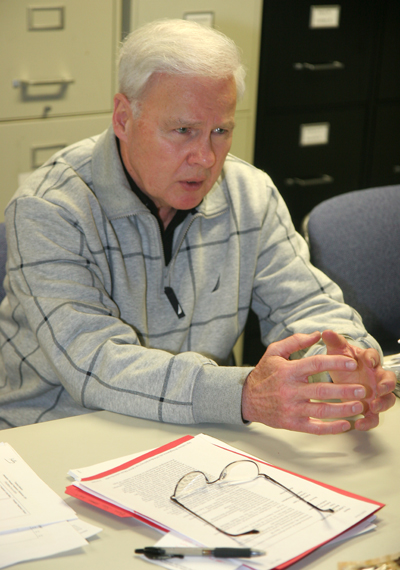
Binghamton University students have become adept at balancing classwork, jobs and social lives, but we often forget that our professors perform that balancing act as well. Many of Binghamton’s professors are involved in extensive research projects when they’re not inside Lecture Hall.
Dr. Norman Spear is one such professor leading a major research project.
Spear, a psychology professor, is leading several studies at the University. He is working in collaboration with postdoctoral student Juan Molina on a major project concerning the effects of alcohol. Spear’s lab is researching the exposure of newborns to alcohol, and its correlation to an increased disposition to drink later in life.
The idea for this study stemmed from Juan Molina’s concern about high levels of alcoholism in Latin America. Molina believed it could be linked with the early exposure to alcohol that is common in Latin American culture.
Spear and his team already know that prenatal or postnatal exposure to alcohol does lead to an increased tendency to drink. Postnatal alcohol exposure through breastfeeding or medicine is also the cause of inefficient nursing and sleep disruption. It has also been proved that those exposed to alcohol early in life are significantly more likely to abuse alcohol as adolescents.
Spear’s study, which is funded by a five year grant from the National Institute on Alcohol Abuse, questions why alcohol is rewarding to infant rats and which brain mechanisms are responsible for it.
Spear hopes that this information can be applied to human experience as well. ‘Alcohol abuse in adolescents is a serious international problem,’ Spear said. The results of his animal studies could shed light on why some children begin consuming alcohol.
Undergraduate students can benefit from these studies as well. Spear encouraged students to contact him if they would like to get involved in any research. He said Binghamton undergraduates have been so beneficial to research that the University often cites their exceptional involvement when recruiting new faculty.
‘It is wonderful for professors to have such a large pool of talent,’ Spear added.


